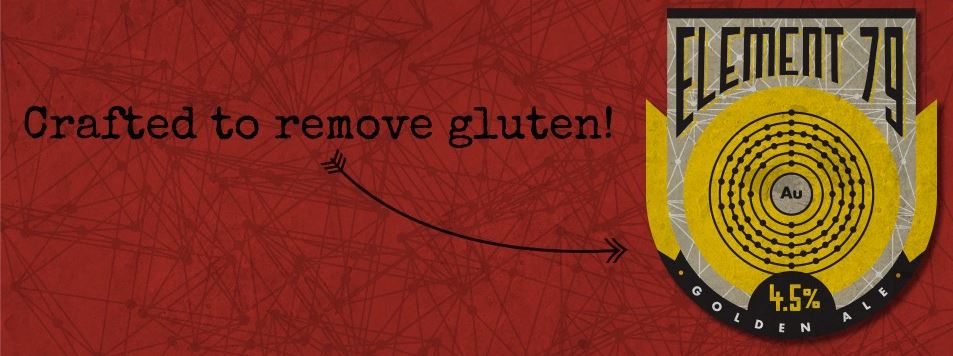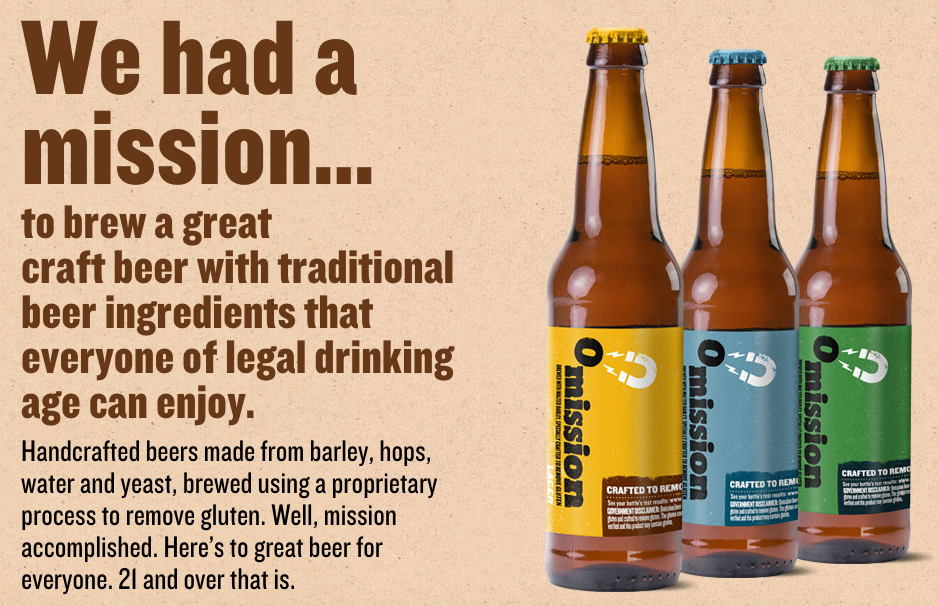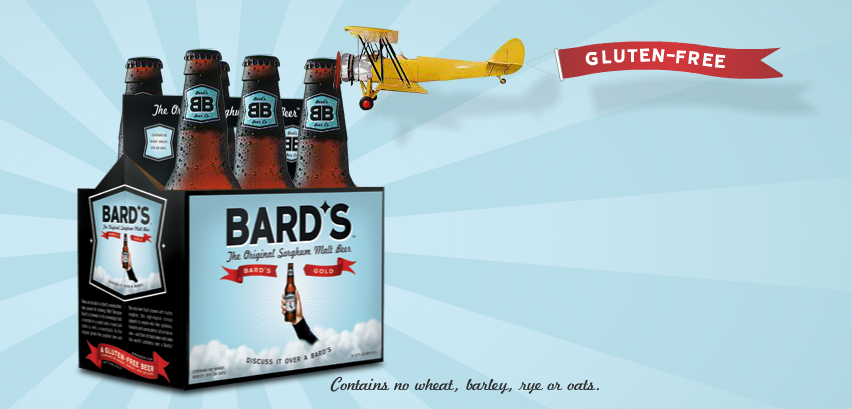What About ‘Gluten-Removed’ Beers?
 Over the past several years, the gluten-free community has seen several beers come on the market that are made with barley (a gluten grain), but advertised as “gluten-free” or “gluten-removed.”
Over the past several years, the gluten-free community has seen several beers come on the market that are made with barley (a gluten grain), but advertised as “gluten-free” or “gluten-removed.”
These beers use an enzyme-based process to break down the gluten, which their manufacturers say renders them safe for those with celiac disease or non-celiac gluten sensitivity to drink. But are they really safe? Unfortunately for beer lovers, that’s not clear. (Excerpted from Jane Anderson’s What About ‘Gluten-Removed’ Beers. See below)
You may also be interested to read 10 Truly Gluten-Free, Great Beers.
 Multiple breweries now craft so-called “gluten-removed” beers, which are beers made with barley (yes, a gluten grain) that then are enzyme-based process to break down the gluten, which their manufacturers say renders them safe for those with celiac disease or non-celiac gluten sensitivity to drink.
Multiple breweries now craft so-called “gluten-removed” beers, which are beers made with barley (yes, a gluten grain) that then are enzyme-based process to break down the gluten, which their manufacturers say renders them safe for those with celiac disease or non-celiac gluten sensitivity to drink.
The problem with these beers is that the gluten protein isn’t really removed. Instead, it’s broken down into smaller fragments that are too tiny to detect by testing … but may not be too tiny to detect by your body.
Some people do just fine with gluten-removed beers, while others have horrible glutening reactions. In addition, celiac disease experts question whether currently available gluten testing technology really can detect the remaining gluten fragments in these beers.
People with celiac disease and non-celiac gluten sensitivity will need to do their own research and make their own decisions about whether or not to try gluten-removed beers. However, I urge extreme caution with them.
 What Really Happens with ‘Gluten-Removed’ Beer
What Really Happens with ‘Gluten-Removed’ Beer
To make this type of beer, brewers start with barley, which gives the beer a traditional flavor (many people dislike the taste of beer brewed with gluten-free grain such as sorghum). Then, they add an enzyme that breaks down gluten and other proteins.
Note that I said “breaks down” gluten. It doesn’t actually remove the gluten from the beer — instead, it knocks down the gluten (which is a large, cumbersome molecule) into much smaller pieces. These pieces are too small to be detected in laboratory tests, and, according to those making these beers, should be too small for your body to detect as “gluten,” as well.
The resulting brew tests below the currently accepted “gluten-free” standard of less than 20 parts per million. But that’s where the controversy begins.
Gluten detection isn’t a particularly straightforward process, and there are several methods in use that can produce different results when used to test the same product.
To test its finished beer, Omission Beer — one of the brewers using this process — uses a gluten test called the Competitive R5 ELISA, which is used to test foods that are “hydrolyzed,” or broken down. This test looks for a specific lengthy fragment of the gluten protein, and returns a negative result if it doesn’t find that fragment.

But Are Those Gluten Fragments Potentially Problematic?
Researchers aren’t certain whether these small fragments of the gluten protein can still cause reactions and (in people with celiac disease) damage to the small intestine. There’s also some concern in the scientific community that the Competitive R5 ELISA misses gluten that can be detected by other testing methods.
The U.S. government is worried enough about this issue to prevent brewers from labeling anything “gluten-free” that contains de-glutened grains.
In a 2012 ruling, the Alcohol and Tobacco Tax and Trade Bureau told manufacturers of both brewed beverages (like beer) and distilled beverages (like vodka and whiskey) that they cannot use the term “gluten-free” if the product’s ingredients include wheat, barley or rye.
Although the alcohol bureau has primary jurisdiction over beer, the Food and Drug Administration’s finalized rules on gluten-free labeling do extend to beer, and the agency will be keeping an eye on both beers made from gluten-free grains and “gluten-removed” beers made from barley to make certain they comply with those regulations.
The agency also intends to issue a proposed rule to address the issue of fermented or hydrolyzed products, which can include beers.
 So Should You Drink ‘Gluten-Removed’ Beer?
So Should You Drink ‘Gluten-Removed’ Beer?
Well, the jury’s still out: some people report that they’re fine after drinking it, while others report that it gives them a bad glutening.
My own personal experience and history involves some bad reactions to distilled alcohol made from gluten grains, and I won’t be trying barley-based “gluten-removed” beer. You’ll need to make your own decision on this, but I recommend steering clear, at least until there’s better research on these types of hydrolyzed gluten products and their effects on your body.
Made from sorghum, yeast, hops and water—contains no wheat, barley, rye or oats and is naturally gluten-free. Learn more …

*Jane Anderson and What About ‘Gluten-Removed’ Beers?
Jane started her journalism career as a reporter with the Associated Press and then specialized in medical writing. She covered Congress as the Washington bureau chief for the Medical Tribune, a newspaper for physicians, and served as editor of Inside Health, an educational newsletter for non-physicians.
Since going gluten-free in 2003 back before most people had even heard of celiac disease, non-celiac gluten sensitivity, or the gluten-free diet. Jane has developed extensive expertise in food industry practices that can introduce gluten cross-contamination into otherwise “naturally gluten-free” foods. She now works to help others who are new to gluten-related conditions and to living gluten-free.
Follow Jane on Facebook












